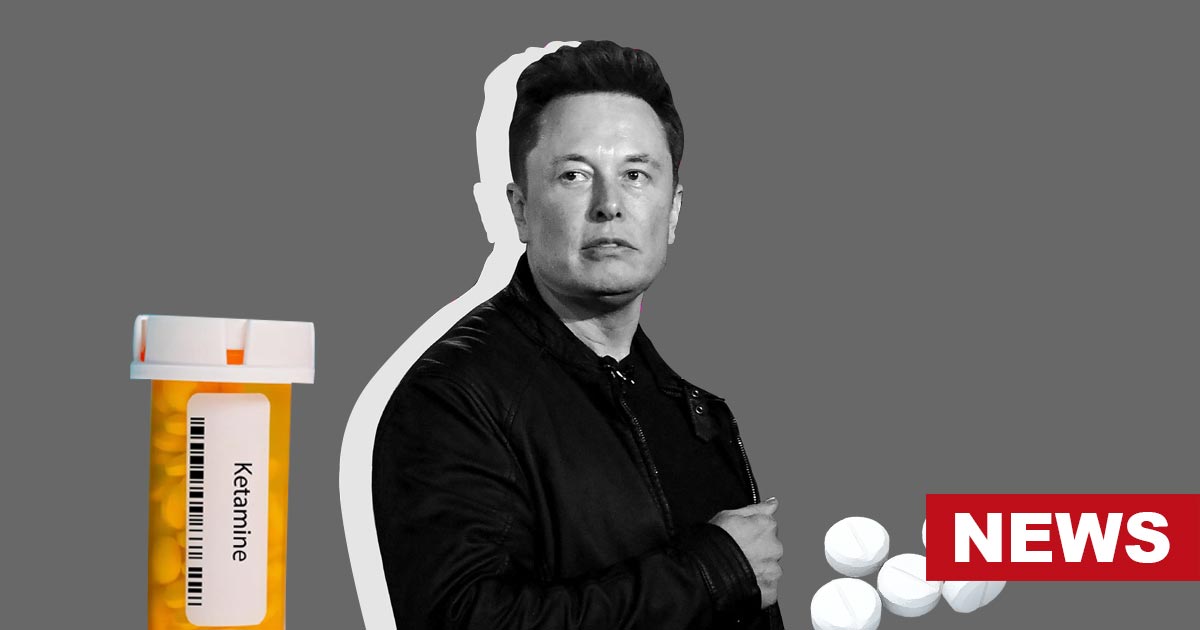A major US publication The Wall Street Journal recently reported that billionaire and SpaceX CEO Elon Musk takes ketamine for managing his depression symptoms. Reliable sources also elaborated that Musk’s private micro-doses of the psychedelic drug transform into full doses at parties.
Elon Musk’s ketamine treatment for depression was revealed to the public by the CEO himself on Twitter several days ago. In a tweet, he wrote: “Depression is over-diagnosed in the US, but for some people it really is a brain chemistry issue. But zombifying people with SSRIs for sure happens way too much. From what I’ve seen with friends, ketamine taken occasionally is a better option.”
In a follow-up tweet, Musk further clarified, “I’ve talked to many more people who were helped by psychedelics & ketamine than SSRIs & amphetamines.”
Needless to say, Elon Musk’s ketamine depression treatment ran into hot waters. Many criticized his reckless use of a controversial drug and a clinically untested self-diagnosis of severe depression. This is not the first time the billionaire has been associated with drug use.
Several reports claim he repeatedly consumes magic mushrooms during parties. Musk also faced considerable scrutiny following his participation in a podcast in 2018, where he was seen smoking marijuana. Although the act is legal in California but remains federally illegal, this raised concerns about the implications for his aerospace company’s contracts with NASA.
What Is The Date-rape Drug Ketamine?
Ketamine, a powerful dissociative anesthetic, gained infamy as a date-rape drug due to its ability to induce sedation and memory loss. It has been used illicitly to incapacitate individuals, leaving them vulnerable to sexual assault.
Moreover, ketamine—that also goes by names such as “vitamin K”, “Special K”, “Super K,” and “cat Valium”—when taken recreationally, can produce hallucinations akin to banned psychedelic drugs like LSD or Lysergic acid diethylamide. It can also trigger potential conditions for substance use disorder (SUD). This misuse of ketamine has raised serious concerns and prompted discussions about the need for stricter regulations.
Ketamine Therapy For Depression
In recent years, research has shown promising results regarding ketamine therapy for depression treatment, especially in cases of severe depression where traditional antidepressants have failed.
Ketamine acts on the brain’s glutamate system, producing rapid antidepressant effects. Ketamine for depression is typically administered intravenously under medical supervision, specially in in-patient psychiatric facilities.
Exercising Caution For Using Ketamine For Depression
The sensational news that Elon Musk takes ketamine for depression treatment may mean more than the eccentric CEO’s whimsical antics. It can potentially be in line with scientific research and changing stances in psychedelic therapy.
Nonetheless, despite the controversial drug’s potential therapeutic benefits, it is crucial to exercise caution when considering ketamine for depression treatment. Ketamine is still being studied, and its long-term effects and safety concerns remain under investigation.
Additionally, the use of ketamine for depression should only be pursued under the guidance of qualified healthcare professionals in authorized clinical settings to ensure proper monitoring and minimize risks.





















